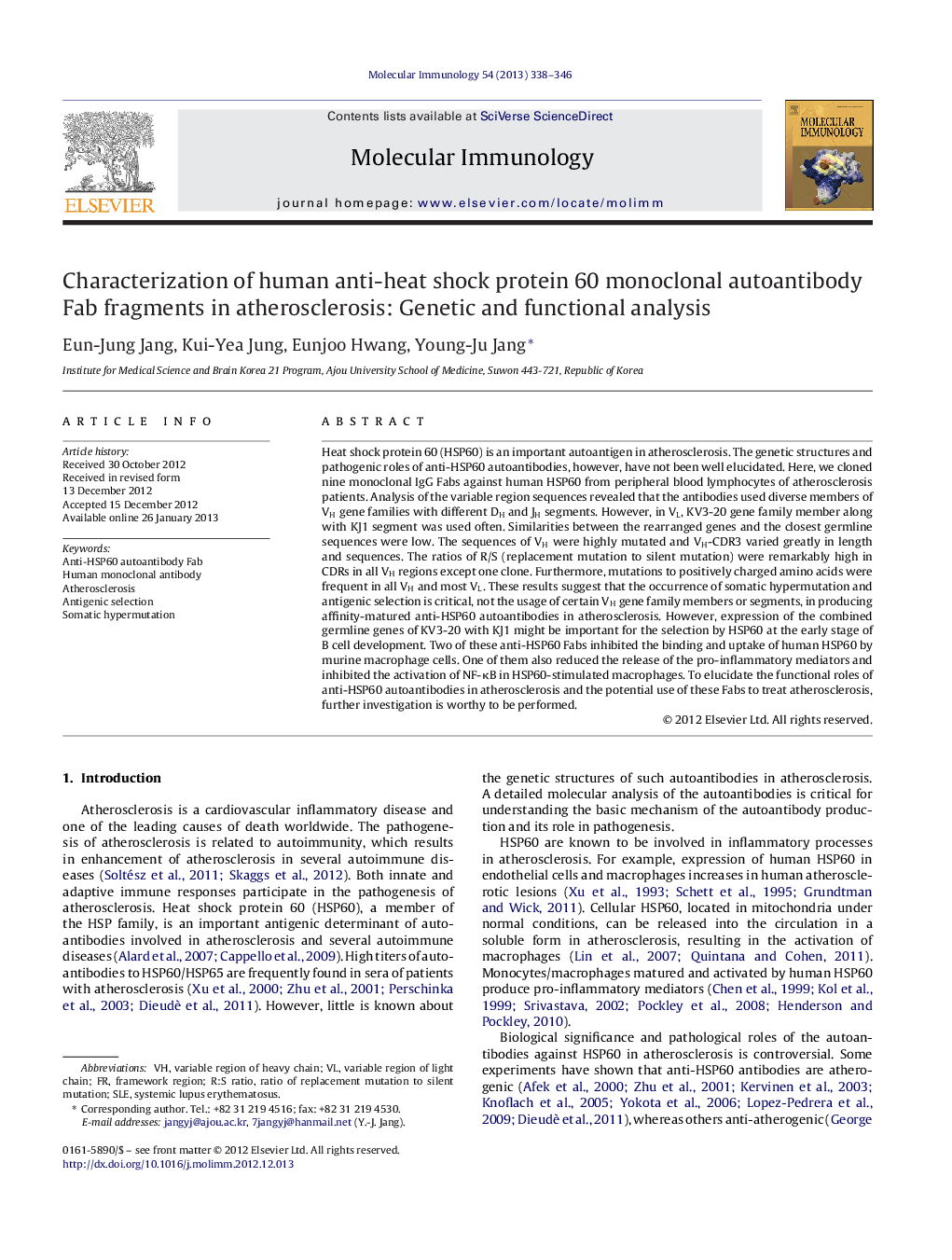| کد مقاله | کد نشریه | سال انتشار | مقاله انگلیسی | نسخه تمام متن |
|---|---|---|---|---|
| 2831188 | 1570728 | 2013 | 9 صفحه PDF | دانلود رایگان |

Heat shock protein 60 (HSP60) is an important autoantigen in atherosclerosis. The genetic structures and pathogenic roles of anti-HSP60 autoantibodies, however, have not been well elucidated. Here, we cloned nine monoclonal IgG Fabs against human HSP60 from peripheral blood lymphocytes of atherosclerosis patients. Analysis of the variable region sequences revealed that the antibodies used diverse members of VH gene families with different DH and JH segments. However, in VL, KV3-20 gene family member along with KJ1 segment was used often. Similarities between the rearranged genes and the closest germline sequences were low. The sequences of VH were highly mutated and VH-CDR3 varied greatly in length and sequences. The ratios of R/S (replacement mutation to silent mutation) were remarkably high in CDRs in all VH regions except one clone. Furthermore, mutations to positively charged amino acids were frequent in all VH and most VL. These results suggest that the occurrence of somatic hypermutation and antigenic selection is critical, not the usage of certain VH gene family members or segments, in producing affinity-matured anti-HSP60 autoantibodies in atherosclerosis. However, expression of the combined germline genes of KV3-20 with KJ1 might be important for the selection by HSP60 at the early stage of B cell development. Two of these anti-HSP60 Fabs inhibited the binding and uptake of human HSP60 by murine macrophage cells. One of them also reduced the release of the pro-inflammatory mediators and inhibited the activation of NF-κB in HSP60-stimulated macrophages. To elucidate the functional roles of anti-HSP60 autoantibodies in atherosclerosis and the potential use of these Fabs to treat atherosclerosis, further investigation is worthy to be performed.
► Genetic analysis of nine human monoclonal anti-HSP60 antibody Fab fragments isolated from peripheral blood lymphocytes of atherosclerosis patients.
► Somatic hypermutation and antigenic selection may occur during affinity maturation for the formation of anti-HSP60 autoantibodies in atherosclerosis.
► The combination of certain L chain germline genes (KV3-20 with KJ1) might be important for the selection by HSP60 at the early stage of B cell development.
► HSP60 binding and uptake were specifically inhibited by two Fabs, and the inflammatory reactivity in HSP60-stimulated macrophages blocked by one of them, suggesting the potential use of anti-HSP60 Fabs to treat atherosclerosis.
Journal: Molecular Immunology - Volume 54, Issues 3–4, July 2013, Pages 338–346